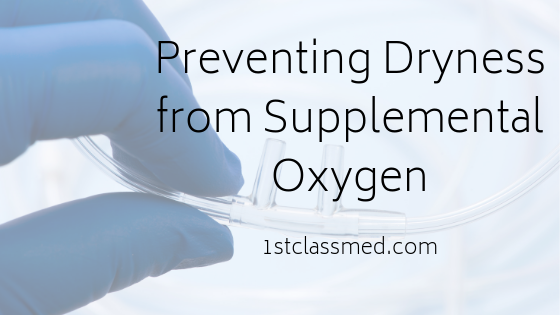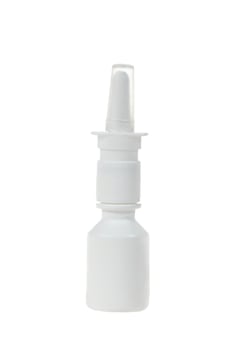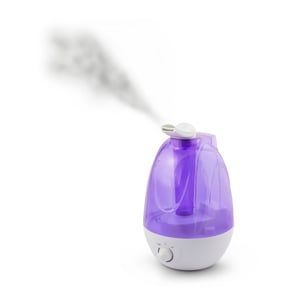
Supplemental oxygen is often prescribed for those with respiratory diseases such as COPD and cystic fibrosis.
With continuous supplemental oxygen, it is possible that you will notice an increase in dryness throughout your airways (nose, mouth and throat).
Beyond severe dryness, supplemental oxygen can also cause irritated skin and even nose bleeds.
Luckily, there are ways to prevent dryness that is caused from supplemental oxygen.
How it Can Happen:
When you use supplemental oxygen, you often get your source of oxygen through cannulas, a mask or a breathing tube.
For those who require continuous supply of oxygen, they often use cannula, which can cause a dry or bloody nose.
With continuous or pulse flow, there is still a large amount of oxygen going through the cannula and the nose that can lead to irritation.
Even with a mask or tube, the oxygen can be very drying when it is breathed in, through the mouth or nose.
As supplemental oxygen provides a continuous flow of oxygen (or pulse flow) it is common for those using a portable concentrator or oxygen tank to also suffer with a dry or bloody nose.
With the continuous flow of oxygen, the skin in the nose can become easily irritated.
The skin in the nose is already very delicate, so for it to become more irritated it can lead to very dry, irritated nose or even a bloody nose.
This can become very painful for the oxygen user, as the nose is easily irritated and inflamed.
Preventing a Dry Nose:
In order to prevent a dry and bloody nose, it is vital to keep the nose moist and hydrated.
There are a few ways to keep your nose hydrated while you are using supplemental oxygen.
Using a humidifier in your home can provide moisture in the air, which can help moisturize your nose.
Though this may not provide a noticeable difference, it can help maintain moisture in the air and help your nose long term.
If a humidifier does not provide a noticeable difference, you can try using a humidifier that attaches to your oxygen concentrator.
Nasal moisturizer or nasal spray can also help add moisture to your nose and provide a barrier from the oxygen.
It is important to use a nasal moisturizer versus any petroleum-based moisturizer (i.e. Vaseline), as it can catch fire (though oxygen concentrators are not at a high risk of fire, it is best to be proactive).
Products that can be used as a nasal moisturizer include aloe vera, or any water-based moisturizer or lubricant.
Homemade aloe vera gel is the safest form to use in your nasal passageways.
These can provide more hydration and lower fire risk than any petroleum-based product found, and they may even cost less.
If none of these seem to help, speak with your doctor about what will else can be done to minimize nasal dryness and prevent bloody noses.
Preventing a Dry Mouth & Throat:
Oxygen concentrator users can also suffer from a dry mouth and throat that can make it painful to breathe.
When you use supplemental oxygen, it is important to drink plenty of fluids to help keep the mouth and throat hydrated.
This will not only help your airways from being so dry, but it will also help your overall health.
If this is not enough, a humidifier may also be helpful by making the air in your home have more humidity.
This humidity can make the air you breathe feel less harsh on your mouth and lungs.
Some oxygen concentrators have built-in humidifiers, as well as humidifiers that can be attached.
If your oxygen concentrator has a built-in humidifier, make sure to only use distilled water and make sure it is full before you leave the house.
You also need to make a point of cleaning the humidifier, tubing and nasal cannulas and keep them clean to prevent any bacteria from growing.
Where to Buy These Products:
Before you buy anything, it is important to discuss what supplies you will need to help prevent dry airways.
It is also very important to discuss how to use all supplies you need so you know how to use it when you get the supplies.
Your doctor is a great place to start when looking for supplies to help reduce the dryness in your nose, mouth and throat.
They will most likely have a handful of recommendations of local supply stores that will have what you need.
You can also look into online stores and find what seller has the best product for the price.
It is important to discuss all supplies with your doctor before you buy them, as some of the products you look into may not be right for you.
Conclusion:
Dry airways are painful and can lead to a bloody nose or severe pain if not treated.
For those with supplemental oxygen, a dry nose, mouth and throat can be common but there are ways to minimize the severity.
By using a nasal moisturizer or nasal spray, it can lower the likelihood of suffering from a dry or bloody nose.
If it is your mouth and throat that is dry, staying hydrated and using a humidifier can help increase moisture in your home and airways.
Speak with your doctor if you have questions about what supplies you should buy and where you should purchase them.



